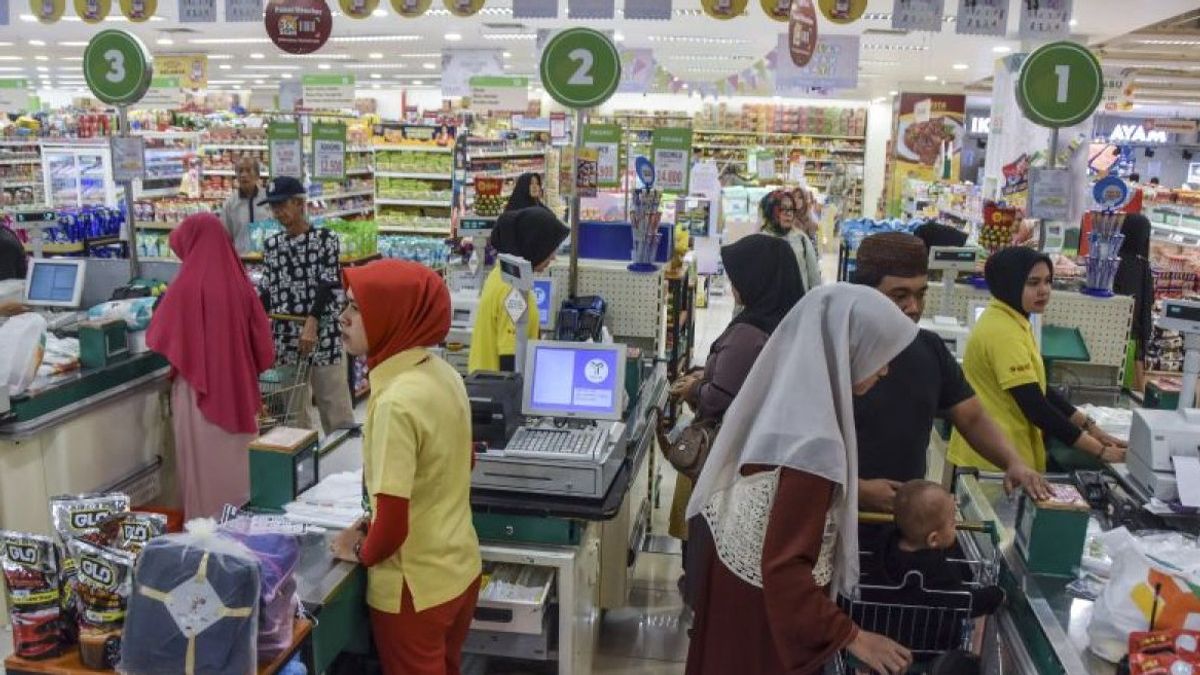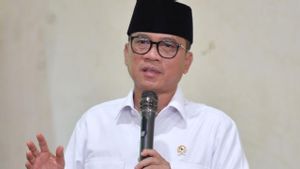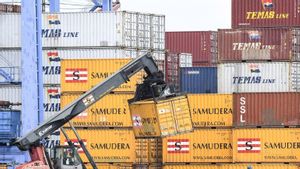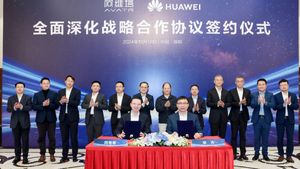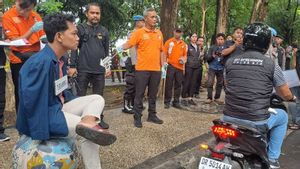JAKARTA - The government officially implemented a Value Added Tax (VAT) of 12 percent on January 1, 2025. Head of the Fiscal Policy Agency (BKF) of the Ministry of Finance Febrio Nathan Kacaribu estimates that tax revenue is only from the policy of increasing the VAT rate of 12 percent by 2025 to Rp75 trillion.
"That's around Rp75 trillion from the VAT," said Febrio to the media crew, Monday, December 16.
Previously, Coordinating Minister for Economic Affairs Airlangga Hartarto said that in accordance with the mandate of the Law on Harmonization of Tax Regulations (UU HPP) according to the schedule determined that the VAT rate would increase by 12 percent as of January 1, 2025.
"Next year's VAT will increase by 12 percent as of January 1 but the goods needed by the community are given facilities or 0 percent," he said at a press conference on the Economic Stimulus Package for Welfare, Monday, December 16.
Airlangga said that the groups of goods exempted from VAT are basic necessities such as rice, meat, eggs, fish and milk. Likewise with education, health, financial services, labor, insurance and water.
Airlangga emphasized that in maintaining the purchasing power of the government community, it will continue to provide economic policy stimulus for low-income households, namely that the VAT rate will be borne by the government by 1 percent for basic goods so that it will still be subject to 11 percent.
Meanwhile, the basic goods that will be subject to VAT rates are 11 percent, namely cooking oil with Oilita packaging, wheat flour and industrial sugar.
"Minya Kita, used to be bulk oil, it was given 1 percent assistance, so it didn't go up to 12 percent. Then wheat flour and industrial sugar, so each of them was given 1 percent which was 1 percent borne by the government," he said.
Airlangga said this stimulus was given to maintain people's purchasing power, especially for basic needs and specifically industrial sugar which supports the food and beverage processing industry, which has a fairly high role.
Similarly, Minister of Finance Sri Mulyani Indrawati said there was an adjustment to the 12 percent VAT policy rate which would be worn specifically for luxury goods and consumed by the public which had previously been exempted by VAT.
"In accordance with input from various parties, including in the DPR, so that the principle of mutual cooperation in which VAT-12 is imposed on goods categorized as luxury," he said at a press conference on the Economic Stimulus Package for Welfare, Monday, December 16.
Sri Mulyani conveyed that goods and services are included in the premium category, such as premium valuable food groups, VIP class hospital services, and expensive international standard education.
"We also need to improve a little so that in this case the principle of mutual cooperation and justice is maintained, namely the group that is included in the group consumed by decile 10, namely the richest decile 9-10 we will apply the imposition of VAT," he said.
Sri Mulyani gave an example, such as premium beef, such as Wagyu or Kobe, which costs a range of Rp. 2.5 million to Rp. 3 million per kilogram. Meanwhile, the meat consumed by the public in general ranges from Rp. 150,000 to Rp. 200,000 per kilogram, not subject to VAT.
In addition to beef, 12 percent of premium foods are subject to VAT including premium rice, premium fruits, premium fish, namely premium salmon, premium tuba, shrimp and premium crudecea (king crab).
Sri Mulyani said that the 12 percent VAT rate would also be imposed on premium schools whose payments reached hundreds of millions.
"Premium education services, which in this case pay their tuition fees, can reach hundreds of millions, premium health will also be subject to VAT, and also VAT for electricity customers of 3,500-6,600 volt amperes (VA) will be subject to VAT," he explained.
According to Sri Mulyani, the policy for implementing VAT is 12 percent in 2025 which will be worn specifically for luxury goods that were previously exempted by VAT because the majority of the richest groups are decile 9 and 10 most enjoy this VAT exemption facility.
BACA JUGA:
Sri Mulyani explained that the group community enjoyed the exemption of VAT around Rp41.1 trillion. Meanwhile, the lower class people only enjoy a little VAT exemption.
"This means that our VAT exemption is then more in favor of a more capable group. By us, we also need to improve a little so that in this case the principle of mutual cooperation and justice is maintained," he explained.
Meanwhile, there are three basic necessities that are given 1 percent VAT DTP incentive, or will still be subject to an 11 percent VAT rate. Namely, cooking oil for the Minita brand, wheat flour, and industrial sugar.
Sri Mulyani explained that the three items were given VAT DTP incentives because they were goods needed by the community in their daily lives.
"We all from the ministry decided for goods such as wheat flour, sugar for industry, and VAT Oil to remain 11 percent, meaning an increase to 12 percent, 1 percent of the government pays," he said.
The English, Chinese, Japanese, Arabic, and French versions are automatically generated by the AI. So there may still be inaccuracies in translating, please always see Indonesian as our main language. (system supported by DigitalSiber.id)
